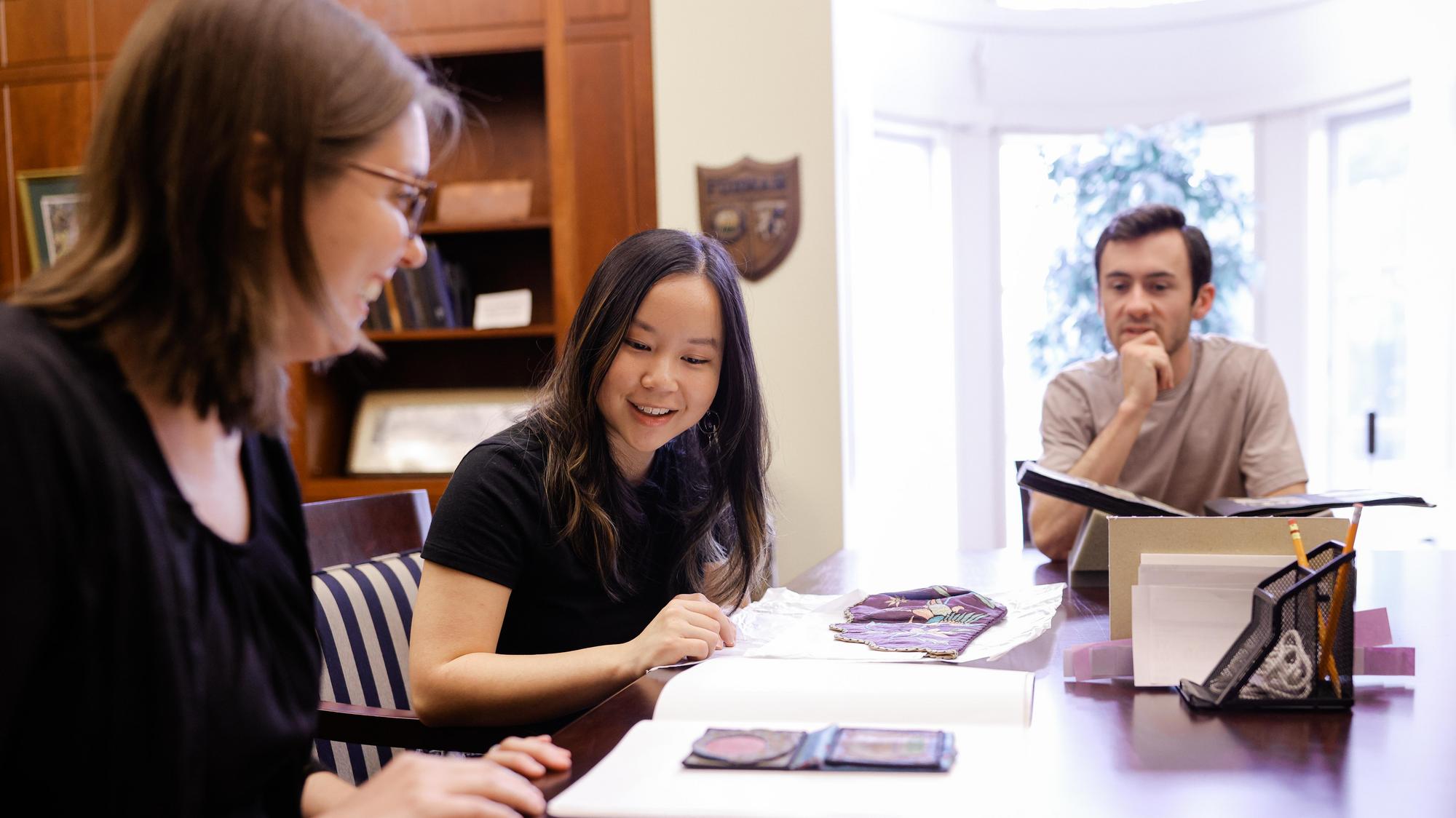Summer Research Fellowship uncovers Furman’s deep Asian connections

Furman’s connections to the Asian American and Pacific Islander (AAPI) community began more than a century ago. The first Asian exchange student on Furman’s campus was Chu Jung, born in 1869 in Canton (now known as Guangzhou), China, who is listed in the 1898 student rolls. Paul B. Bien from China, who came to the university to teach chemistry in 1968, appears to have been Furman’s first Asian faculty member. In 1973, Lin Chen, Furman’s first AAPI faculty member with an Asian specialization, began work as an assistant professor of political science. After establishing a minor in Asian studies in 1988 and creating the Department of Asian Studies in 1989, Furman nurtured its growth into one of the largest Asian studies programs among Southeastern private liberal arts and sciences universities.
Those connections intrigued Kylie Fisher, an assistant professor of art history. Her desire to take a deep dive into the James B. Duke Library, paired with her admiration for the work of the Seeking Abraham project in addressing the school’s historic connections to slavery, led to a unique Summer Research Fellowship opportunity for two undergraduates.
“Looking at Seeking Abraham, I thought there must be other individuals, communities or even cultural and historical movements that are somehow represented in the Special Collections and Archives that we just don’t know about,” Fisher said.
Fisher, who is Japanese American, saw an opportunity to pilot an exploration of Furman’s Asian and AAPI connections in a summer research project. The professor visited an Introduction to Asian Studies course to discuss the fellowship, which intrigued Eli Kibler ’24, an English/Asian studies double major who is minoring in film studies.
“I saw this as the perfect avenue to take,” Kibler said. “Something that I am passionate about that could help the community learn more about Furman’s history, as well as a way to help me learn some professional and research skills. I feel like this is one of the signs that I’m taking the right path in my life, like it’s perfectly molded to fit my interests.”
Eva Kiser ’23, an Asian studies and anthropology double major, was studying abroad when her academic advisor emailed her about the research fellowship opportunity. The project aligns with the focus of her studies as well as her personal interests, she said.
“Coming into Furman, I was really surprised to see how involved the Asian community was,” said Kiser, who is Asian American. “A lot of times we assume things about colleges in the South, and we don’t tend to think of departments like Asian studies being so successful and so integrated with the campus and the Greenville community.”
Kiser and Kibler have spent the bulk of their summer examining objects and archival records in the library’s Special Collections and Archives, many of which are connected to Furman’s history of missionary work, including the scrapbook and memoirs of Gordon Poteat, son of Edwin McNeil Poteat, Furman’s president from 1903 to 1918, from his missionary trips throughout Asia. They have also combed through decades’ worth of Furman publications and spent time researching documents in the South Carolina Room at the Greenville County Public Library, finding examples of Asians and Asian Americans who have made contributions to the Upstate of South Carolina.
In the archives of yearbooks from the 1920s, Kiser followed the college career of Charles Wang, a graduate of the Class of 1924, from Kaifeng, China, the first Asian student to finish a four-year degree at Furman. The 1924 Bonhomie documents Wang’s involvement in the tennis team, the dramatic club, the Adelphian literary society and the Student Volunteer Band.
The fellows aim to publish their findings online in a publicly available project called “Untold Journeys,” created with the ArcGIS StoryMaps system, by the end of July.